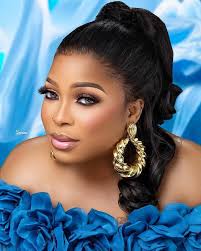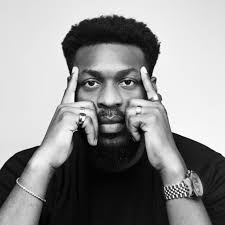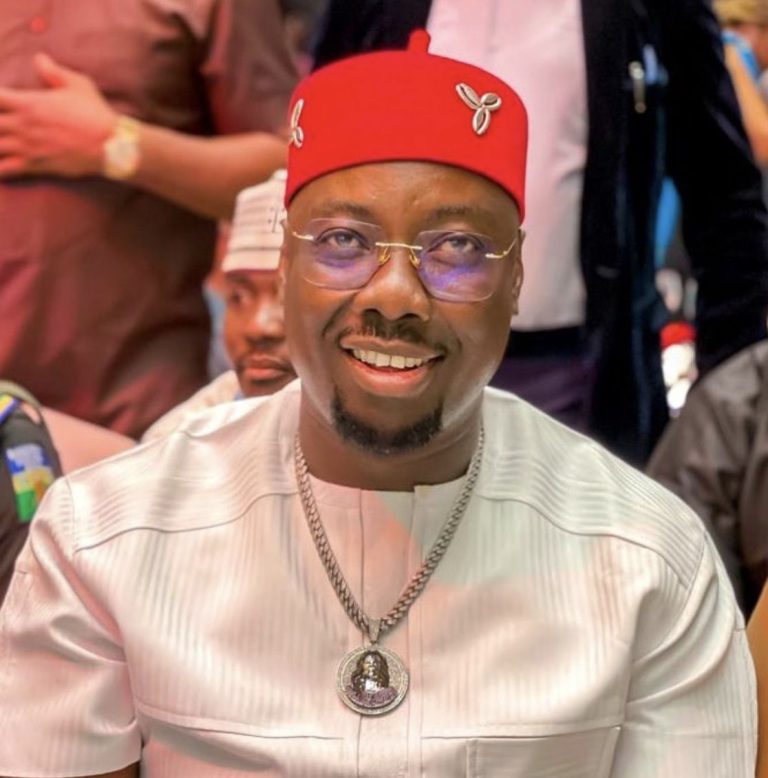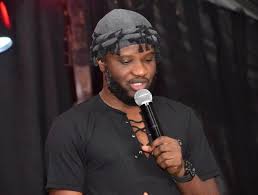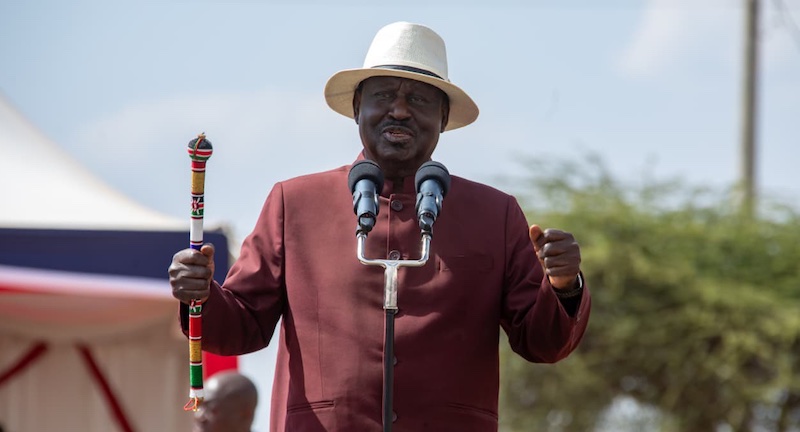
Raila Amolo Odinga (1945–2025), beloved as “Baba,” “Agwambo,” and “Tinga,” was Kenya’s fearless opposition titan, a five- time presidential contender, former Prime Minister (2008–2013), and African Union envoy whose heart beat for democracy, devolution, and social justice.
A polarizing yet electrifying force, he galvanized the downtrodden, enduring nearly a decade of brutal detention under Moi and forging the historic 2018 Handshake with Uhuru Kenyatta to heal a fractured nation.
His stirring words echoed in the souls of millions: “Injustice anywhere is a threat to justice everywhere” (2007 campaign) and “We have a duty to unite Kenya” (2018 Handshake). Raila’s indomitable spirit, proclaiming “The struggle for a better Kenya is never over” (2022), reshaped a nation’s dreams.
On October 19, 2025, he was laid to rest at his ancestral home in Bondo, Siaya County, mourned by a grieving nation that cherished his boundless courage. In this newspaper, we bring you the soaring highs and heart-wrenching lows of a titan who forever changed Kenya’s soul.
Raila, the veteran Kenyan opposition leader, former Prime Minister, and champion of democratic reforms, passed away on October 15, 2025, at the age of 80. He died from cardiac arrest at Devamatha Hospital in Koothattukulam, Kerala, India, where he had been undergoing treatment for diabetes, hypertension, and chronic kidney disease.
His body was repatriated to Kenya aboard a specially renamed Kenya Airways flight, RAO001, and his burial took place on October 19, 2025, at his family home in Bondo, amid widespread national mourning and tributes from leaders across Africa and beyond.
Born on January 7, 1945, in Maseno, Kisumu District, in what was then the Colony and Protectorate of Kenya, Odinga was the son of Jaramogi Oginga Odinga, Kenya’s first Vice President, and Mary Juma Odinga.

As a member of the Luo ethnic group, he grew up immersed in politics and activism. He completed his early education at Maranda High School before pursuing higher studies in East Germany, earning a master’s degree in mechanical engineering from the Technical University of Magdeburg in 1970.
Upon returning to Kenya, he founded an engineering firm and held positions at the Kenya Bureau of Standards, rising to deputy director before his full immersion in politics. Odinga’s political career spanned over five decades, marked by relentless advocacy for multi-party democracy and devolution.
He was detained without trial multiple times under President Daniel arap Moi’s regime, including a six-year stint following the 1982 coup attempt, enduring hardships that solidified his reputation as a fighter against authoritarianism.
Elected as Member of Parliament for Langata in 1992, he held the seat until 2013. He founded the National Development Party and later the Orange Democratic Movement (ODM), serving as Minister for Energy (2001–2002) and Minister of Roads, Public Works, and Housing (2003–2005).
Following the disputed 2007 presidential election, which triggered widespread violence, he became Kenya’s Prime Minister in a power-sharing A five-time presidential candidate (1997, 2007, 2013, 2017, and 2022), Odinga consistently challenged electoral outcomes, leading to landmark Supreme Court rulings, including the annulment of the 2017 results.
Internationally, he served as the African Union’s High Representative for Infrastructure Development from 2018 to 2023 and mediated the 2010–2011 Ivorian crisis. In 2024, he was nominated for the African Union Commission Chairperson but was unsuccessful.
Odinga was a polarizing figure: adored by millions for his pro-poor policies, anti-corruption crusades, and efforts to uplift the marginalized, yet vehemently opposed by critics who accused him of inciting unrest and involvement in scandals, including the 2019 fake gold scam and corruption allegations in youth programs.
Despite this, his legacy as a galvanizer of the downtrodden endures, through initiatives like economic equity programs and devolution that empowered local communities. He is survived by his wife, Ida Odinga; children Rosemary, Raila Jr., and Winnie; and numerous grandchildren.
His son Fidel predeceased him in 2015. In lieu of flowers, the family requests donations to causes supporting democracy and youth empowerment in Kenya. A state funeral and public memorials honored his contributions, drawing crowds that reflected both his immense popularity and the divisions he embodied.
THE ENIGMA WHO IGNITED HOPE
From his birth in Maseno in 1945, as the son of the legendary Jaramogi Oginga Odinga, Raila inherited a legacy of defiance against oppression. Educated in the forge of East Germany’s engineering halls, he returned not just as a builder of machines, but as a architect of dreams for the disenfranchised.
His early detentions under Moi’s iron fist—six long years in isolation, cut off from the world, even from the news of his mother’s passing—did not break him; they forged him into the unbreakable advocate we came to know.
Raila was liked and hated in equal measure, a testament to his profound impact on our nation’s soul.
To his devoted supporters, particularly among the Luo community and the urban poor in places like Kibra, he was Baba—the father figure who stood tall against the elite, demanding devolution, economic justice, and an end to corruption.
His rallying cries during presidential campaigns, his “Kibaki tosha” endorsement that toppled decades of KANU rule in 2002, and his role as Prime Minister in healing the wounds of 2007’s post-election violence—all these painted him as a savior of the downtrodden.
He galvanized the masses, the youth scraping by in informal settlements, the farmers burdened by drought, and the workers crushed by inequality. Through manifestos promising universal healthcare, job creation, and social protection, he gave voice to the voiceless, inspiring protests that shook the halls of power and birthed reforms like the 2010 Constitution’s devolution.
Yet, to his detractors, Raila was the agitator, the unpredictable enigma whose calls for change sometimes veered into chaos. Accusations of involvement in scandals—from the maize imports to the fake gold schemes—and criticisms of inciting violence during elections and protests made him a lightning rod for hatred.
He was blamed for divisions, for ethnic mobilization, for ambitions that seemed to eclipse national unity. In a nation as diverse and fractious as ours, such polarization was inevitable for a man who refused to whisper when the moment demanded a roar.
It must be remembered: it is precisely this duality that made Raila extraordinary. He did not seek universal adoration; he sought transformation. As African Union envoy, he bridged continents for infrastructure that lifted entire regions from poverty.

His “handshake” with Uhuru Kenyatta in 2018 mended a fractured country, proving that even bitter rivals could forge peace for the greater good. And in his final years, even as health waned in distant India, his spirit remained indomitable.
Raila leaves behind a Kenya forever changed—more democratic, more decentralized, more attuned to the cries of the marginalized.
POPULAR NICKNAMES
Raila’s nicknames, often bestowed by supporters, critics, or the media, encapsulated his resilience, mystique, and connection to the masses. They were both affectionate and satirical, reflecting his dual role as a revered leader and a lightning rod for controversy:
1. Baba (“Father” in Swahili): The most enduring and affectionate nickname, used by supporters, especially among the Luo and urban poor, to signify his role as a paternal figure protecting the marginalized.
It symbolized his mentorship of younger leaders like Junet Mohamed and his advocacy for economic equity. At his funeral, Uhuru Kenyatta called him “a father to all, a man who saw no tribe.”
2. Agwambo (“The Unpredictable One” in Dholuo): A Luo term meaning “mysterious” or “enigmatic,” it captured Raila’s strategic unpredictability—his ability to shift alliances (e.g., with Moi in 2001 or Uhuru in 2018’s Handshake) while maintaining his base. The Daily Nation noted this nickname highlighted his “chameleon-like political survival.”
3. Tinga (“Tractor” in Swahili): Derived from his campaign symbol during the 2007 election (an orange tractor for the Orange Democratic Movement), it symbolized his promise to plow through corruption and inequality.
Supporters chanted it at rallies, but critics used it mockingly to suggest he was “plowing” chaos during protests.
4. The People’s President: After the disputed 2017 election, Raila swore himself in as the “People’s President” in a symbolic ceremony, a bold act that supporters celebrated as defiance against electoral fraud but critics derided as divisive.
The East African called it “a title that cemented his folk-hero status among the downtrodden.”
5. Joshua or Joshua of Canaan: A biblical reference used by loyalists, likening Raila to the prophet leading his people to the “promised land” of justice and prosperity. It gained traction during his 1997–2022 presidential campaigns, with supporters chanting, “Joshua will take us to Canaan!”
Critics flipped it, joking he’d “never reach Canaan” after five failed bids.
6. The Enigma:
Coined by the Kenyan press and political analysts, this reflected his unpredictable strategies and resilience despite setbacks.
The Standard noted, “Raila, the Enigma, baffled foes and friends alike with his ability to rise from political ashes.”
7. Jaduong’ (“The Great One” in Dholuo):
A Luo honorific emphasizing his stature as a leader of immense influence, often used in Nyanza to signify respect for his sacrifices, including nearly a decade in detention.
POPULAR JOKES
Kenya’s vibrant political humor, often shared in matatus, markets, and social media, targeted Raila’s electoral persistence, alliances, and larger-than-life persona.
These jokes, while sometimes biting, were a testament to his inescapable presence in public life. Many resurfaced in tributes post-2025, blending humor with nostalgia.
1. The Eternal Candidate:
• Joke: “Raila has run for president so many times, NASA should send him to the moon—he’d win there!”
• Context: This quip, popular in Nairobi’s CBD during the 2013 and 2017 campaigns, poked fun at his five presidential runs (1997, 2007, 2013, 2017, 2022), all unsuccessful.
Supporters countered with, “He doesn’t lose; the system steals his victory!” The Daily Nation recalled such humor at his funeral, noting, “Even his losses made him larger than life.”
2. THE HANDSHAKE HOUDINI:
• Joke: “Raila shakes hands with his enemy, and poof! He’s in government again. Is he a politician or a magician?”
• Context: After the 2018 Handshake with Uhuru Kenyatta, which ended post-2017 election tensions, social media buzzed with memes of Raila as a wizard. Critics jested he “sold out” for power, while allies saw it as statesmanlike. Junet Mohamed quipped at the funeral, “Baba’s handshakes could solve wars!”
3. THE TRACTOR THAT NEVER STOPS:
• Joke: “Tinga’s tractor is stuck in reverse—it keeps plowing but never reaches State House!”
• Context: Tied to his ODM symbol, this joke circulated during the 2007 campaign, mocking his relentless drive despite electoral setbacks. Supporters flipped it, saying, “His tractor plowed devolution into the Constitution!” The Standard noted this duality: “Tinga was a joke to some, a lifeline to others.”
4. THE CANAAN DREAM:
• Joke: “Raila promised Canaan, but we’re still in Egypt, and he’s out of miracles!”
• Context: Popular in opposition strongholds like Kibra, this jab referenced his “Joshua” nickname and unfulfilled promises of prosperity. Yet, at his Kisumu memorial, mourners chanted, “Joshua took us halfway to Canaan; we’ll finish the journey.”
5. THE DETENTION SURVIVOR:
• Joke: “Moi locked Raila up for years, but Baba came out stronger. The only thing that could detain him was traffic!”
• Context: This jest, shared in matatu banter, celebrated his survival of nearly a decade in detention (1982–1988, among others). Philip Etale recalled Raila joking about Nyayo House torture: “They thought they’d break me, but I was practicing for marathons!”
6. THE RIDDLE MASTER:
• Joke: “Raila speaks in riddles because he knows Kenya’s problems are a puzzle only he can solve!”
• Context: Raila’s love for parables and cryptic speeches (e.g., “The hyena and the rabbit” during 2007 rallies) sparked jokes about his “riddle addiction.”
The East African noted post-death: “His riddles confused foes but rallied the masses.” Supporters loved how he used folklore to simplify complex issues.
LESSER-KNOWN STORIES ABOUT BABA
Raila’s life, marked by political highs and personal trials, inspired countless human interest tales that reveal his warmth, resilience, and deep connections with ordinary people.
DEFIANT CHILDHOOD
Raila’s siblings, including brother Oburu Odinga, recently shared rare glimpses of his boyhood in rural Bondo, Siaya County, painting him as a fearless youngster molded by his father Jaramogi’s strict ideals.
At Maranda High School in the 1950s, young Raila once publicly challenged a teacher for unfair punishment— earning a scolding from his no-nonsense mother, Mary Ajuma Odinga, who stormed the school to defend her sons but later grounded Raila for his audacity.

Even at home, he’d defy Jaramogi’s orders, like sneaking out to play football instead of studying, once retorting, “Baba, rules are for the weak.”
These stories, recounted at his funeral, underscore how Raila’s early spirit of resistance foreshadowed his lifelong fight against oppression, but few outside Nyanza knew of his playful, unyielding boyhood charm.
THE “GIRLS” OF THE ODINGA HOUSEHOLD
Oburu Odinga revealed during tributes that he and Raila, along with their late brother Oduor, were playfully called “the girls” by their mother, who enlisted them in household duties like cooking and fetching firewood in their Nyamira cotton fields.
Raila, the eldest, excelled at these tasks—whipping up ugali with flair—while Oburu admitted he was “just average.”
This lighthearted sibling dynamic, shared on Oburu’s birthday (coinciding with Raila’s death), highlights a tender family side rarely spotlighted amid political narratives. “We grew up as twins,” Oburu said, crediting Raila as mentor, business partner, and confidant who consulted him on every major decision.
A SOLITARY STROLL TO MOURN HIS MOTHER
Upon his 1988 release from nearly six years of solitary confinement under Daniel arap Moi—where he was tortured and isolated—Raila rejected a waiting car from brother Oburu. Instead, he insisted on walking miles to Kisumu city center, saying, “I want to feel freedom again, to breathe it.”
This poignant act doubled as private mourning for his mother, Mary Ajuma, who died of depression in 1984 during his imprisonment; he learned of her passing only via a smuggled note.
“Inside, I felt young again—the fire of democracy burned within me,” he later reflected. This raw, unpublicized gesture of reclaiming agency after unimaginable loss humanizes the stoic activist.
PHILANTHROPY FOR MAU MAU HEROES
In a gesture symbolizing his reverence for Kenya’s freedom fighters, Raila discreetly bought a house in Athi River for Mukami Kimathi, widow of Mau Mau leader Dedan Kimathi, and funded her grandson’s engineering studies in India.
This occurred during his 2008–2013 prime ministership, when he also championed the KSh 300,000 compensation for Mau Mau veterans— often credited to his behind-the-scenes advocacy.
“A statesman,” one admirer noted, as these acts flew under the radar, contrasting his public persona with private humility toward unsung heroes.
HOSPITAL VISITS TO RIVALS: COMPASSION ACROSS POLITICAL DIVIDES
Despite fierce rivalries, Raila visited political foe Moses Kuria three times at Karen Hospital in 2021–2022 during a five-month health battle, and once in Dubai— even as Kuria aligned with the opposing Tanga Tanga camp.
“Baba risked his life to visit me in COVID isolation,” Kuria shared post-Raila’s death, calling him “the most compassionate man.” Similarly, aide Philip Etale recalls Raila gifting him KSh 5,000 (then a fortune) as a KBC intern in 2000, blowing on the notes as a Luo blessing, and later KSh 10,000 during the 2002 KANU-NDP merger—small acts that built lifelong loyalty.
THE FUNDI’S FAREWELL: JUNET MOHAMED’S “POLITICAL ORPHAN” TRIBUTE
Longtime aide and Suna East MP Junet Mohamed, who met Raila at 24 as his “political engineer” (fundi), joked at the funeral: “I met Raila when I was young; now that he’s gone, I’m the self-appointed chairman of the orphans.”
Their bond began humbly—Junet as a mechanic for Raila’s vehicles—evolving into unbreakable trust. This anecdote, laced with humor amid grief, captures Raila’s knack for elevating everyday allies into confidants, a side seldom explored beyond elite circle
PITYING IDA: THE CROWDED HOME AND A LIGHTHEARTED CONFESSION
Over dinner at his Karen home, Raila once confided to guests, including Benji Ndolo, that he “pities Ida”—his wife of over 50 years.
“She met a calm university student at UoN, married him, and now her house is always full of people because he’s a politician,” he laughed. Ida, in her funeral eulogy, echoed this tenderness, crediting open communication for weathering his detentions: “What kept us strong was talking, even through the hardest times.”
Their story, strained by years apart but unbreakable, reveals a romantic core often overshadowed by public scrutiny.
MENTORING GEN Z IN CRISIS: SAVING A PROTESTER’S LIFE FROM AFAR
Musician and activist Kasmuel McOure shared how, during 2024 anti-Finance Bill protests, Raila quietly deployed undercover security to shadow him amid death threats—despite McOure’s public defiance.
“He watched over me even when I challenged him,” McOure wrote, recounting a pivotal 2024 meeting at Capitol Hill that “altered my life’s course.”
This paternal protection for a skeptical youth activist illustrates Raila’s behind- the-scenes role as a guardian of emerging voices, far from rally spotlights. These stories, pieced from family eulogies, supporter memoirs, and resurfaced anecdotes, portray Raila not just as a political titan but as a deeply empathetic figure—flawed, funny, and fiercely loyal.
They remind us that his greatest legacy may lie in the personal fires he kindled in others, often away from the cameras.
As one sibling put it, “From defiance as a boy to his final days, Raila lived by conviction, not convenience.”
HIGH MOMENTS:
Odinga’s career was punctuated by triumphs that reshaped Kenya’s political landscape:
• Advocacy for Multi-Party Democracy (1980s–1990s): As a key figure in the underground resistance against Moi’s one-party rule, his detentions and activism contributed to the reintroduction of multi-party politics in 1991, earning him the moniker “Enigma” for his strategic maneuvering.
• “Kibaki Tosha” Endorsement (2002): By rallying behind Mwai Kibaki with the famous phrase “Kibaki Tosha” (Kibaki is enough), Odinga helped end KANU’s 39-year grip on power, leading to Kibaki’s victory and Odinga’s appointment as Minister of Roads.
• Prime Ministership (2008–2013): In the wake of the 2007 election crisis, he negotiated a power-sharing deal, becoming Prime Minister and overseeing infrastructure booms, constitutional reforms, and the promulgation of the 2010 Constitution, which introduced devolution.
• 2017 Election Annulment: His legal challenge led to Kenya’s Supreme Court nullifying the presidential election results—a first in Africa—highlighting his role in strengthening judicial independence and electoral integrity.
• The Handshake (2018): Reconciling with President Uhuru Kenyatta through the symbolic “Handshake,” Odinga helped quell post-2017 tensions, leading to the Building Bridges Initiative aimed at national unity and constitutional amendments.
• African Union Role (2018–2023): As AU High Representative for Infrastructure, he advanced pan-African projects like the African Continental Free Trade Area and regional connectivity, solidifying his status as a continental statesman.
LOW MOMENTS
Despite his highs, Odinga faced significant setbacks and controversies:
• Repeated Election Losses (1997– 2022): Five unsuccessful presidential bids, often marred by allegations of rigging, left him branded as the “perennial loser,” with the 2007 defeat sparking deadly violence that claimed over 1,300 lives and displaced hundreds of thousands.
• Detentions and Exile (1980s): Enduring nearly a decade in prison without trial, including torture in Nyayo House, marked personal lows, though they bolstered his resilience.
• Post-Election Violence (2007–2008): Accused by critics of inciting ethnic clashes after disputing the results, leading to ICC investigations (later dropped), which tarnished his image internationally.
• Scandals and Allegations: Implicated in the 2008 maize scandal, the 2019 fake gold scam involving UAE royals, and corruption in the National Youth Service, though he denied involvement and no convictions followed.
• Failed AU Bid (2024): Losing the African Union Commission Chairperson race to Djibouti’s Mahamoud Youssouf was seen as a capstone disappointment, amid health struggles.
• Polarization and Unrest: Criticized for mobilizing protests that sometimes turned violent, including during the 2022 elections and supporting Gen Z demonstrations, which opponents labeled as destabilizing.
